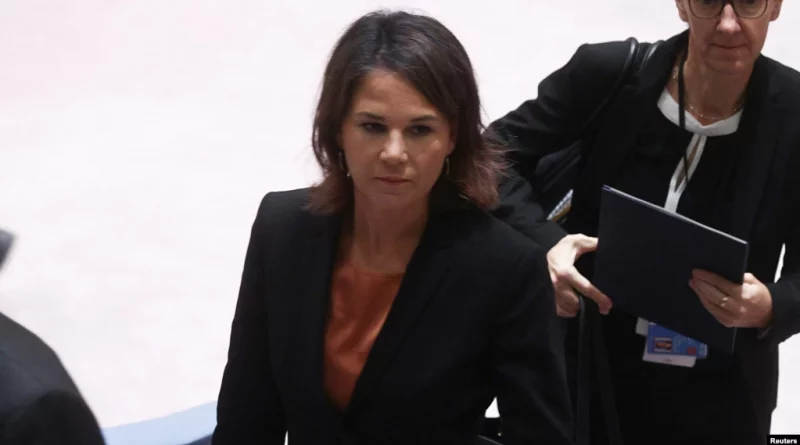Heads of G7 foreign ministries condemn referendums in the occupied Ukrainian territories
Heads of G7 foreign ministries condemn referendums in the occupied Ukrainian territories
The G7 foreign ministers strongly condemn the announcement by the Russian authorities of their intention to hold fictitious “referendums” on sovereign Ukrainian territories temporarily placed under Russian control due to the invasion of Ukraine by Russian troops. This was stated in a joint communiqué of the G7 powers issued after their ministerial meeting Thursday in New York on the margins of the UN General Assembly.
The communiqué, issued on behalf of Annalena Berbock, the German foreign minister who now holds the interim G7 presidency, said that representatives of the United States, Canada, Britain, France, Germany, Italy and Japan, as well as the European Union High Representative who participated in the meeting, stressed that “all UN member states have a duty to refrain from threatening or using force against the sovereignty and territorial integrity of any state.”
That is why, the joint communiqué noted, “any referendum held under conditions of Russian military presence, intimidation and forced deportations cannot be free or fair. Any annexation of Ukrainian territory would be a gross violation of Ukraine’s sovereignty and the UN Charter.
The document calls on countries around the world not to recognize the results of these “referendums” if they do take place.
“The G-7 will also steadfastly strive to implement targeted sanctions and to exert sustained economic and political pressure on Russia… Russia must immediately stop its aggression, withdraw its troops and military equipment from Ukraine, and respect Ukrainian sovereignty and territorial integrity within its internationally recognized borders. The G7 also calls on Russia to immediately stop its operations of filtering Ukrainian civilians and forcibly deporting them to Russia,” the statement reads.
The communiqué also says that the G7 countries are extremely concerned and intend to make every effort to reduce the negative consequences of Russia’s war against Ukraine for the rest of the world, especially for the most defenseless countries. These consequences include food and energy security, as well as inflation and the growth of public debt in many countries of the world.
